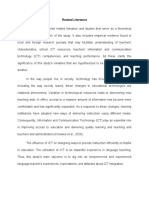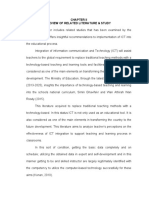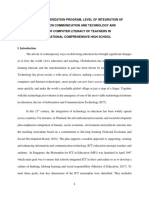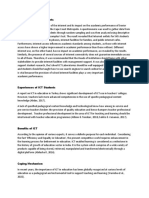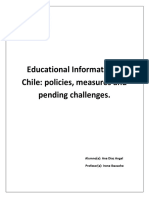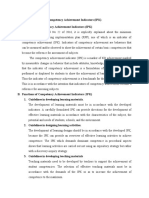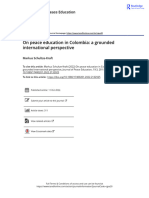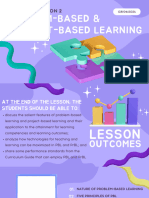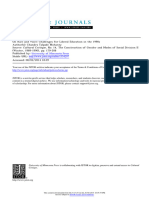0% found this document useful (0 votes)
84 views12 pagesResearch Chapter 2
This chapter reviews the integration of Information and Communication Technology (ICT) in primary education, highlighting its benefits such as enhanced student engagement, collaboration, and personalized learning experiences. It emphasizes the need for ongoing professional development for educators and the importance of adapting the curriculum to include ICT tools to prepare students for the 21st century. The Philippine educational system is noted for its efforts to incorporate ICT, aiming to improve access to quality education and develop essential skills among learners.
Uploaded by
comonogkiksCopyright
© © All Rights Reserved
We take content rights seriously. If you suspect this is your content, claim it here.
Available Formats
Download as DOCX, PDF, TXT or read online on Scribd
0% found this document useful (0 votes)
84 views12 pagesResearch Chapter 2
This chapter reviews the integration of Information and Communication Technology (ICT) in primary education, highlighting its benefits such as enhanced student engagement, collaboration, and personalized learning experiences. It emphasizes the need for ongoing professional development for educators and the importance of adapting the curriculum to include ICT tools to prepare students for the 21st century. The Philippine educational system is noted for its efforts to incorporate ICT, aiming to improve access to quality education and develop essential skills among learners.
Uploaded by
comonogkiksCopyright
© © All Rights Reserved
We take content rights seriously. If you suspect this is your content, claim it here.
Available Formats
Download as DOCX, PDF, TXT or read online on Scribd
/ 12
